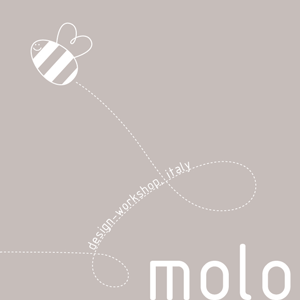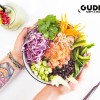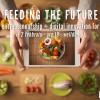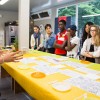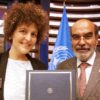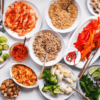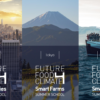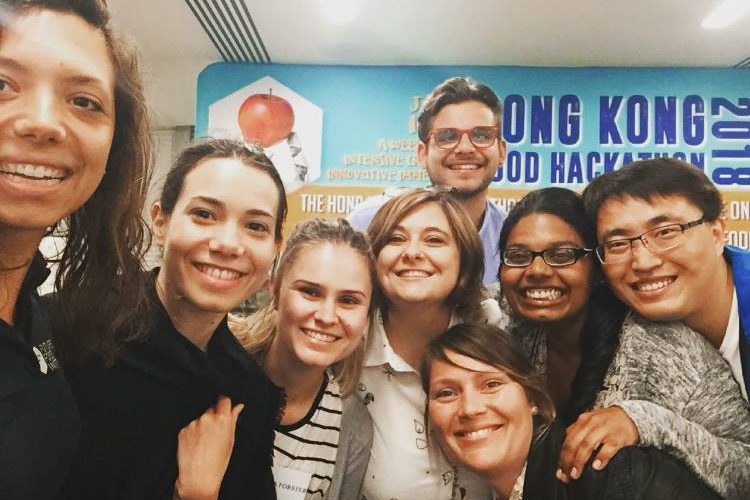
Our Food Innovation Global Mission (FIGM), the official mission sponsored by the Ministry of Foreign Affairs and International Cooperation, has reached its fourth stage of the 2018 edition, dividing the 16 researchers of the Food Innovation Program (FIP) between Hong Kong and Tokyo. In the two great Asian metropolises the students got to know different initiatives and continued to discuss the 4 cornerstones on which the Global Mission focuses: Future Of Proteins, Future Food Services, Sustainable Systems and Agroinnovation.
The fourth stage officially started on June 13th, when the researchers divided themselves between the two cities. In Hong Kong the delegation took part in their first meeting, held at the co-working space Campfire, addressing the future of food. Among others, the conference was sponsored by FourEverGreen HK (a company that sells products made from hydroponic crops) and Eco-Business (the largest Asian community of sustainable business models). After moving to the Hong Kong Polytechnic University (PolyU), the students took part in a workshop related to the Food Innovation and to the developments of the Asian market sponsored by the Italian Chamber of Commerce HK.
On June 15th, the delegation led by UC Davis researcher Chiara Cecchini, took part in the Hong Kong Food HackathonPolyU’s, the initiative in which various professional figures reasoned on new entrepreneurial ideas in the foodtech field (combined with the opportunities of digital and the Internet of Things) and in three days divided between brainstorming moments and business workshops. Among the various speeches held during the hackathon of great interest was that of Unigrà, a Ravenna-based company that deals with sustainability and technological innovation in the agricultural world and which launched its plant-based drink line OraSì. At the end of the hackathon, the master’s students, after a careful reflection on the 4 themes at the base of their training, presented their project of Food Innovation in a short pitch.
The activities of the Tokyo delegation began at the entrance to the headquarters of the local Google office. Here the researchers took part in a workshop dedicated to sustainability, agricultural innovation and the future of food, the cornerstones of the Food Innovation Program. The meeting was attended by Andrea Carapellese of UNIDO ITPO Italy (the UN agency that deals with industrial and technological development) and Sara Roversi, founder of the Future Food Institute.
At the end of the training day, the delegation of the Food Innovation Program in Tokyo explored at night. They visited the Tsukiji Fish Market, attending a bluefin tuna auction and reasoned about the waste of fish processing (as written by Sara Roversi, only 14% of the plastics used in the Japanese market are recycled) and on the intensive fishing of tuna, which is causing severe damage to the ecosystem of the Pacific Ocean.
The master’s students then entered the 3x3lab Future of Tokyo, a co-working space that, as the Future Food Institute explains from its Facebook page, “aims to be much more than an office, but a place to establish useful and comfortable connections.” Here the researchers of the Global Mission met the representatives of UNIDO ITPO Italy and many companies with a great impact in the world of environmental and social sustainability. These include DesignMuse, a company that uses refined and high-tech design to promote socio-cultural exchange between Italy and Japan.
On June 19th, researchers gathered in Hong Kong for the Digital Meetup, an event organized by the Future Food Ecosystem together with Intesa Sanpaolo (a bank that, thanks to the Innovation Center initiative, has supported several projects related to development and innovation) and Anna Romagnoli of the Italian Chamber of Commerce HK. During the meeting with various representatives of start-ups and institutions we talked about food sustainability, food proteins and agro-innovation, exploring the best ideas or best practices related to the issues in question.
In the following days, Tokyo was the scene of several visits by the Master’s researchers. Realities that involved and excited the students were the PASONA Group (recruitment company that on the 12th floor of its headquarters want to install an urban farm, in which, a few meters away from the offices and business meetings they can “graze” in tranquility), Kanto Gakuen University (where agricultural trials are being carried out with little human manipulation) and Farmer’s Market at UNU (market at United Nations University where different fruit and vegetables can be bought from farmers who planted and grew them).
In Hong Kong, however, another part of the delegation ended its prolific meetings with Jimmy Tao, founder of Vitargent (company that uses a platform / detector for food safety that we consume daily starting from substances contained in fish embryos) and David Yeung of Green Monday, a startup that deals with environmental sustainability in food consumption and takes care of the Restaurant Program in Hong Kong, which includes more than 1000 restaurants offering healthy and vegetarian menus with the support of the Yeung company. The founder of Green Mondays shared a T-shirt produced by EcoAlf (a company that reuses marine waste to create clothing items). The writing “Because there’s no planet B” is the tagline of EcoAlf, that in partnership with Green Monday works to fight against pollution and food waste.
In addition to these, they met with E-farm, a Hong Kong company that deals not only with organic production, but also works to recreate a natural ecosystem (based on principles of a circular economy and environmental sustainability) in which various animal species are bred (including insects and frogs) and workshops, seminars and meetings are held with children and adults to raise awareness of the issue of environmental protection.
The researchers in Hong Kong were also able to experience Dyelicious, a small family-run company founded in 2013 with a single objective: to give new life to food waste by making it become useful for fabric colors and objects. Starting from a mixture of sugar, salt and vinegar, Eric Cheung and Winnie Ngai (the two founders of Dyelicious) add different ingredients to produce red (from wood), yellow (from onion and ginger), violet (from cabbage) and gray (from tea). Their company, which has managed over the years to recover 6 tons of food, sells its fabrics and colors and teaches its customers how to use them for their home experiments.
The duel voyages in Hong Kong and Tokyo has certainly paved the way as new challenges are confronted on the Asian continent. The entire delegation will visit Shanghai in the coming days, the hub of the Chinese economy, to continue its Global Mission, as always, in the name of innovation and sustainability.






